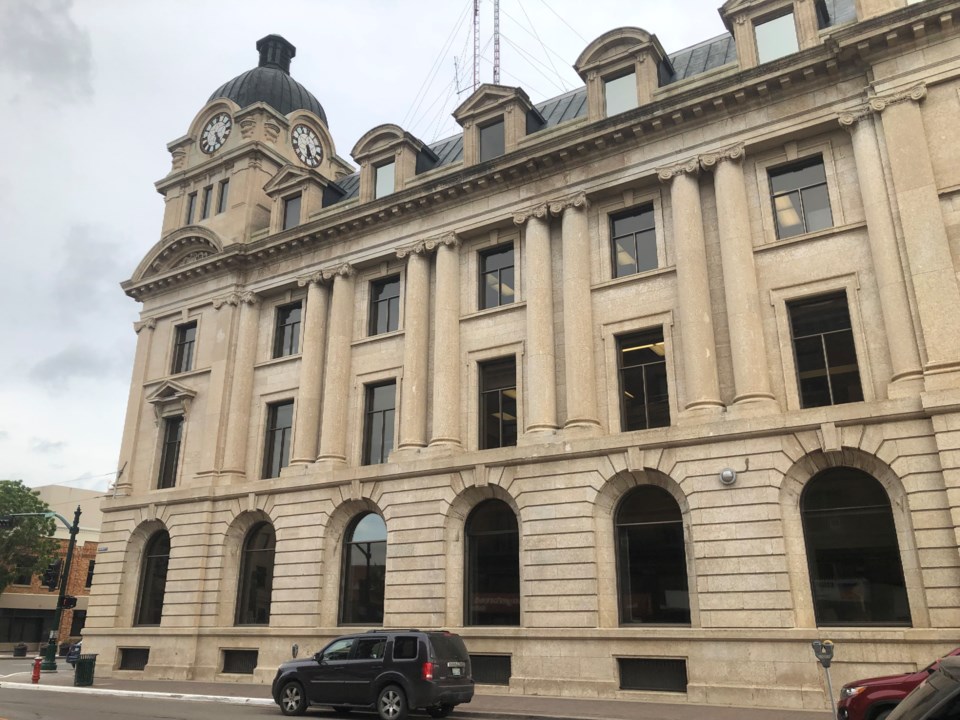Changes are coming to the sewer and water utility bylaw that will affect — among other things — billing for new digital water meters and utility deposit requirements for renters.
During its recent executive committee meeting, city council voted unanimously to direct city administration to proceed with proposed amendments to the sewer and water utility bylaw. Council also approved the Consumption Correction Policy, which sets deadlines for making changes to utility accounts.
The recommendations will become official when council approves them at a future regular meeting.
Four changes
One change to the bylaw redefines the city engineer, with the director of engineering services and the director of public works and utilities now filling that role, explained city treasurer Brenda Hendrickson.
A second change is an addition to section 22(4)(d) of the bylaw and the addition of section 22(6) to assist with billing issues that could arise during the replacement project.
Thirdly, city administration wants an increase in the deposit requirements to $250 from $140 for utility account holders who rent properties, Hendrickson said. This has not increased since 2011, the deposit no longer covers a quarterly bill, and the change would bring Moose Jaw in line with other municipalities.
“Deposits are refunded after two years if the account holder has a good credit history with the city,” she stated. “By increasing the deposit, it assists the city in managing our bad debts, (much of) which come from rental properties.”
Rental accounts comprise about 13.2 per cent of the city’s utility accounts and generate 3.34 per cent of annual revenues. However, rental accounts also make up roughly 98 per cent of the bad debt — or $250,000 to $300,000 — in this area.
City hall believes that the proposed increase should help decrease the percentage of bad debts since the deposits are often applied against the final bills on rental accounts.
City administration is also thinking of using The Cities Act to provide additional collection efforts for unpaid rental utility accounts, said Hendrickson. This would allow bills to be transferred to the property tax account once the owner and renter are notified.
Renters who have already paid their utility deposit at the previous level will not have to pay extra.
The water meter replacement project will see existing meters replaced with devices that city hall can read remotely. However, city hall anticipates there could be billing errors, so two changes to the bylaw and Consumption Correction Policy would address those concerns.
One change includes limiting any billing adjustments to 12 months after the project’s start date of July 1, 2022, which would reduce effects on the utility’s revenue, Hendrickson said. Secondly, approval limits and procedures would be added to calculate adjustments up to $5,000.
“We’re just basically trying to be proactive as we could see that there could be potential issues with consumption that was billed to customers when we actually get the meter readings … (from) the new radio meters,” she added.
The fourth major change would see city hall charge SaskPower to use the municipality’s wastewater treatment plant. About 15 per cent of the effluent from the Great Plains Power Station will need to be treated.
Council thoughts
Transferring unpaid utility bills to property taxes concerned Coun. Doug Blanc, who thought rents would increase because landlords would have to increase damage deposits dramatically. He has heard stories of renters moving in the middle of the night and landlords not finding out until later.
Meanwhile, he has heard from residents who pay sewer rates on the water they use even though most water goes onto gardens and lawns. He noted that if the city subsidized water rates in the summer, it would increase everyone’s water rates.
Not all water goes into the sewers, but it costs money to operate the sewer system, said finance director Brian Acker. He agreed that if city hall provided credits to people, other municipal taxes would increase.
The next executive committee meeting is Monday, July 11.




